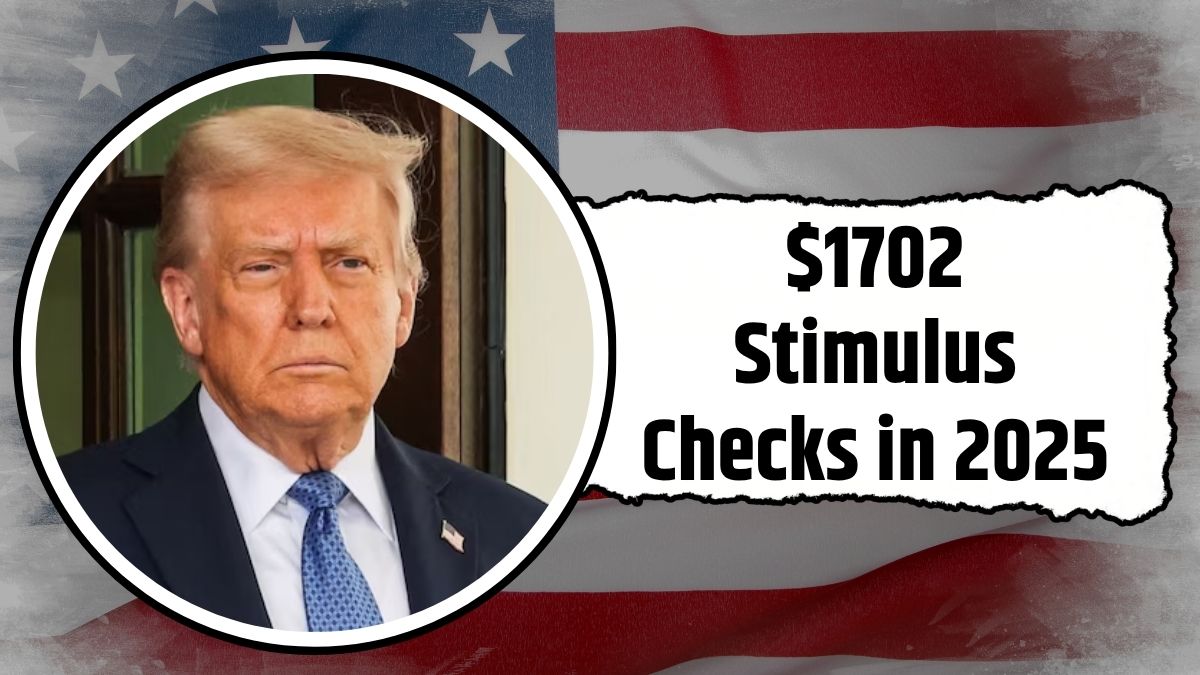Imagine checking your bank account and seeing a $1,702 deposit waiting for you in 2025. For many Americans, this sounds like a federal stimulus comeback. But here’s the truth—this payment isn’t coming from Washington, D.C. It’s Alaska’s Permanent Fund Dividend (PFD), and not everyone is eligible. If you’re wondering whether you—or someone you know—can claim this amount, now’s the time to understand the fine print.
What Is the $1,702 Payment in 2025?
The $1,702 stimulus check is actually the 2025 payout from Alaska’s Permanent Fund Dividend (PFD), a state-run program funded by oil and gas revenues. Each year, eligible Alaska residents receive a share of the state’s mineral wealth. And in 2025, the check is set to be $1,702 per person, marking one of the highest payouts in PFD history.
Unlike federal stimulus checks distributed during the COVID-19 pandemic, this payment is exclusive to Alaska residents and follows a separate set of rules.
The Origins of the Alaska PFD
The Alaska Permanent Fund was created in 1976 to invest a portion of the state’s oil revenue for future generations. In 1982, the first PFD payments were issued to residents as part of the state’s effort to equitably share its natural resource wealth.
Since then, the PFD has become an annual economic booster, providing direct payments to qualifying residents and injecting hundreds of millions of dollars into the state economy each year.
In 2025, a revenue surplus led to a record-high payout of $1,702, offering crucial support at a time of rising living costs and inflationary pressures.
Why the PFD Matters in 2025
With national inflation putting pressure on household budgets, the $1,702 payout could help Alaska residents cover critical expenses like rent, groceries, fuel, and utilities. While there’s no confirmed federal stimulus for 2025, Alaska’s PFD remains a guaranteed income stream—but only for those who meet strict criteria.
It’s not just a check—it’s a lifeline. But the eligibility rules are strict, and if you miss the application deadline, you’ll miss the money too.
Who Is Eligible for the $1,702 PFD?
To qualify for the 2025 PFD, applicants must meet several residency and legal criteria:
- Residency Requirement: You must have lived in Alaska for at least one full year before applying.
- Intent to Stay: You must plan to remain a permanent resident of Alaska.
- Application Deadline: You must apply by March 31, 2025, through the Alaska Department of Revenue.
- Criminal Status: Applicants cannot have felony convictions or have been incarcerated for most of the prior year.
- Absence Limits: Prolonged absences from Alaska may disqualify you unless covered under allowable exceptions (e.g., military service).
Important: You must also file taxes, as the IRS considers the PFD taxable income at the federal level. That means you’ll need to set aside a portion for taxes, usually 15–20%.
How to Apply for the 2025 Alaska PFD
If you’re eligible, here’s how to secure your payout:
- Visit the Official PFD Website: Access the application portal via pfd.alaska.gov.
- Apply Online: Applications open January 1, 2025, and must be completed by March 31, 2025.
- Provide Required Documents: Include proof of residency, identification, and other personal details.
- Track Your Status: You can check your application status and payment schedule on the site.
- Choose Direct Deposit: This ensures faster payment, usually arriving by October 2025.
Missing the deadline? There are no late applications—you’ll have to wait until next year.
PFD vs. Federal Stimulus Checks: What’s the Difference?
| Feature | Alaska PFD (2025) | Federal Stimulus (2021) |
|---|---|---|
| Amount | $1,702 per person | Up to $1,400 per person |
| Eligibility | Alaska residents only | U.S. citizens with income limits |
| Funding Source | Oil and gas revenue | Federal budget |
| Taxable? | Yes (federal tax) | No |
| Application Needed? | Yes | No |
The PFD is not a federal stimulus, and while it offers similar relief, it’s limited to Alaska residents and comes with more rigorous eligibility checks.
How Much Will Alaska Distribute in 2025?
In 2025, Alaska is projected to distribute over $1 billion through the PFD program. With around 600,000 applicants each year, this means a substantial economic stimulus for the state’s local businesses, service providers, and families.
It also positions Alaska as a unique model of direct revenue sharing, rarely seen elsewhere in the U.S.
Insider Tips to Maximize Your PFD
If you’re receiving the $1,702 in 2025, here’s how to make the most of it:
- Use the 50/30/20 Budget Rule:
- 50% ($850) for needs: Rent, food, fuel
- 30% ($510) for wants: Travel, recreation
- 20% ($342) for savings: Emergency fund or investments
- Plan for Taxes: Save 15–20% for federal taxes.
- Apply Early: Submitting in January reduces the risk of delays.
- Stay Informed: Sign up for updates from Alaska’s Department of Revenue.
Frequently Asked Questions (FAQs)
Q1. Is this a federal stimulus check?
No, it’s Alaska’s Permanent Fund Dividend—not a national economic relief program.
Q2. Are Social Security recipients eligible?
Yes, if they meet Alaska’s residency and application rules. Social Security income does not disqualify applicants.
Q3. When will the $1,702 be paid?
Payouts typically arrive in October 2025, provided the application is submitted on time and approved.
Q4. Can I get this check if I live outside Alaska?
No. You must be a current and long-term resident of Alaska to qualify.
Q5. Are there any other 2025 stimulus programs?
No federal stimulus has been confirmed for 2025. Watch the IRS website for future updates.
Why This $1,702 Payment Matters Now More Than Ever
As inflation and uncertainty continue to affect American families, Alaska’s PFD stands out as a rare, guaranteed financial cushion. For many, it means the difference between making ends meet or falling behind on bills.
What makes it powerful? It’s not a one-time handout. The PFD is a decades-long policy commitment, delivering annual support funded by the state’s own natural resources—not federal debt or taxes.
But time is critical. March 31, 2025, is the application deadline, and if you miss it, you miss the money.








